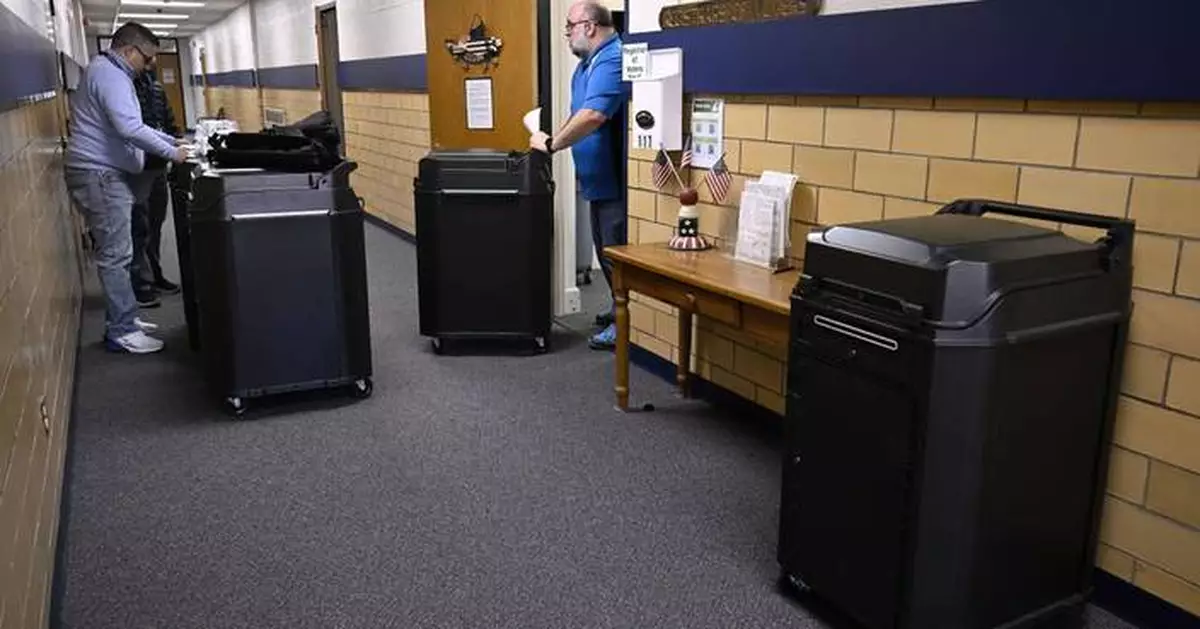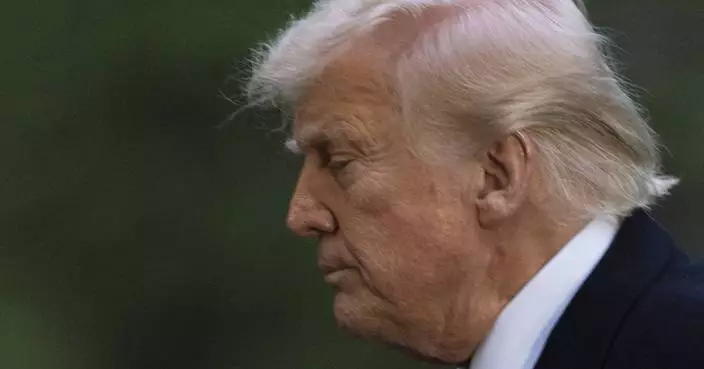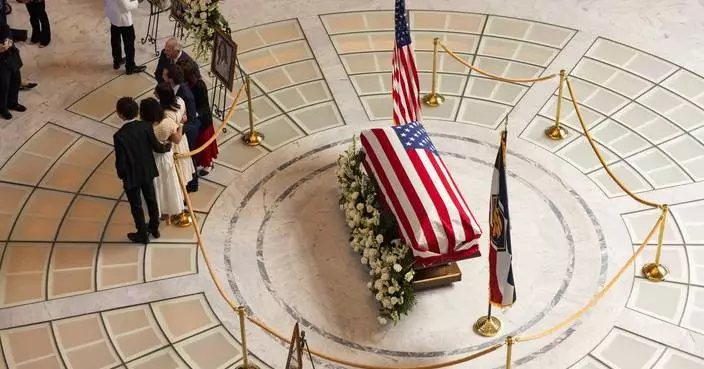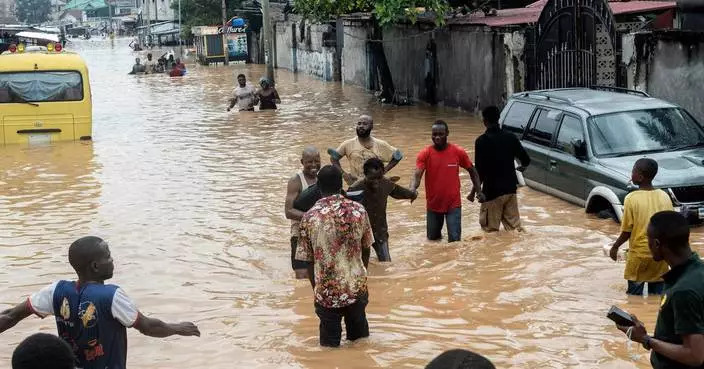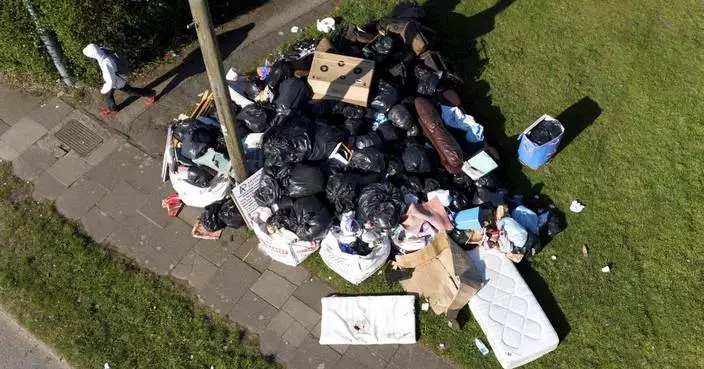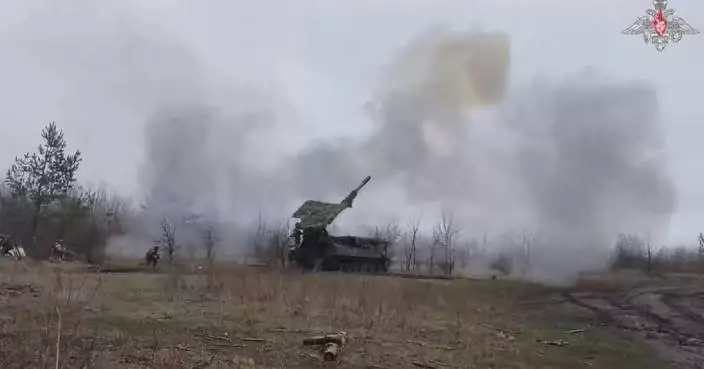NEW YORK (AP) — President Donald Trump's executive order seeking to overhaul the nation's elections faced its first legal challenges Monday as the Democratic National Committee and a pair of nonprofits filed two separate lawsuits calling it unconstitutional.
The Campaign Legal Center and the State Democracy Defenders Fund brought the first lawsuit Monday afternoon. The DNC, the Democratic Governors Association, and Senate and House Democratic leaders followed soon after with a complaint of their own.
Both lawsuits filed in the U.S. District Court for the District of Columbia ask the court to block Trump’s order and declare it illegal.
“The president’s executive order is an unlawful action that threatens to uproot our tried-and-tested election systems and silence potentially millions of Americans,” said Danielle Lang, senior director of voting rights at the D.C.-based Campaign Legal Center. “It is simply not within the president’s authority to set election rules by executive decree, especially when they would restrict access to voting in this way.”
The White House didn’t respond to a request for comment.
The legal challenges had been expected after election lawyers warned some of Trump's demands in the order, including a proof-of-citizenship requirement for voter registration and new ballot deadline rules, may violate the U.S. Constitution.
The order also asserts power that legal experts say the president doesn't have over an independent agency. That agency, the U.S. Election Assistance Commission, sets voluntary voting system guidelines and maintains the federal voter registration form.
The suits come as Congress is considering codifying a proof-of-citizenship requirement for voter registration into law, and as Trump has promised more actions related to elections in the coming weeks.
Both the legal challenges draw attention to the Constitution's “ Elections Clause,” which says states — not the president — get to decide the “times, places and manner” of how elections are run. That section of the Constitution also gives Congress the power to “make or alter” election regulations, at least for federal office, but it doesn’t mention any presidential authority over election administration.
“The Constitution is clear: States set their own rules of the road when it comes to elections, and only Congress has the power to override these laws with respect to federal elections,” said Lang, calling the executive order an “unconstitutional executive overreach.”
The lawsuits also argue the president's order could disenfranchise voters. The nonprofits' lawsuit names three voter advocacy organizations as plaintiffs that they allege are harmed by Trump's executive order: the League of United Latin American Citizens, the Secure Families Initiative and the Arizona Students’ Association.
The DNC's lawsuit highlights the role of the government's controversial cost-cutting arm, the Department of Government Efficiency.
It alleges the order's data-sharing requirements, including instructing DOGE to cross-reference federal data with state voter lists, violate Democrats' privacy rights and increase the risk that they will be harassed “based on false suspicions that they are not qualified to vote.”
“This executive order is an unconstitutional power grab from Donald Trump that attacks vote by mail, gives DOGE sensitive personal information and makes it harder for states to run their own free and fair elections," reads a statement from the plaintiffs.
Trump, one of the top spreaders of election falsehoods, has argued this executive order will secure the vote against illegal voting by noncitizens. Multiple studies and investigations in individual states have shown that noncitizens casting ballots in federal elections, already a felony, is exceedingly rare.
Monday's lawsuits against Trump's elections order could be followed by more challenges. Other voting rights advocates, including the American Civil Liberties Union, have said they're considering legal action. Several Democratic state attorneys general have said they are looking closely at the order and suspect it is illegal.
Meanwhile, Trump's order has received praise from the top election officials in some Republican states who say it could inhibit instances of voter fraud and give them access to federal data to better maintain their voter rolls.
If courts determine the order can stand, the changes Trump wants are likely to cause some headaches for both election administrators and voters. State election officials, who already have lost some federal cybersecurity assistance, would have to spend time and money to comply with the order, including potentially buying new voting systems and educating voters of the rules.
The proof-of-citizenship requirement also could cause confusion or voter disenfranchisement because millions of eligible voting-age Americans do not have the proper documents readily available. In Kansas, which had a proof-of-citizenship requirement for three years before it was overturned, the state's own expert estimated that almost all the roughly 30,000 people who were prevented from registering to vote during the time it was in effect were U.S. citizens who had been eligible.
Monday's lawsuits are the latest of numerous efforts to fight the flurry of executive actions Trump has taken during the first months of his second term. Federal judges have partially or fully blocked many of them, including efforts to restrict birthright citizenship, ban transgender people from military service and curb diversity, equity and inclusion initiatives among federal contractors and grant recipients.
The Associated Press receives support from several private foundations to enhance its explanatory coverage of elections and democracy. See more about the AP’s democracy initiative here. The AP is solely responsible for all content.
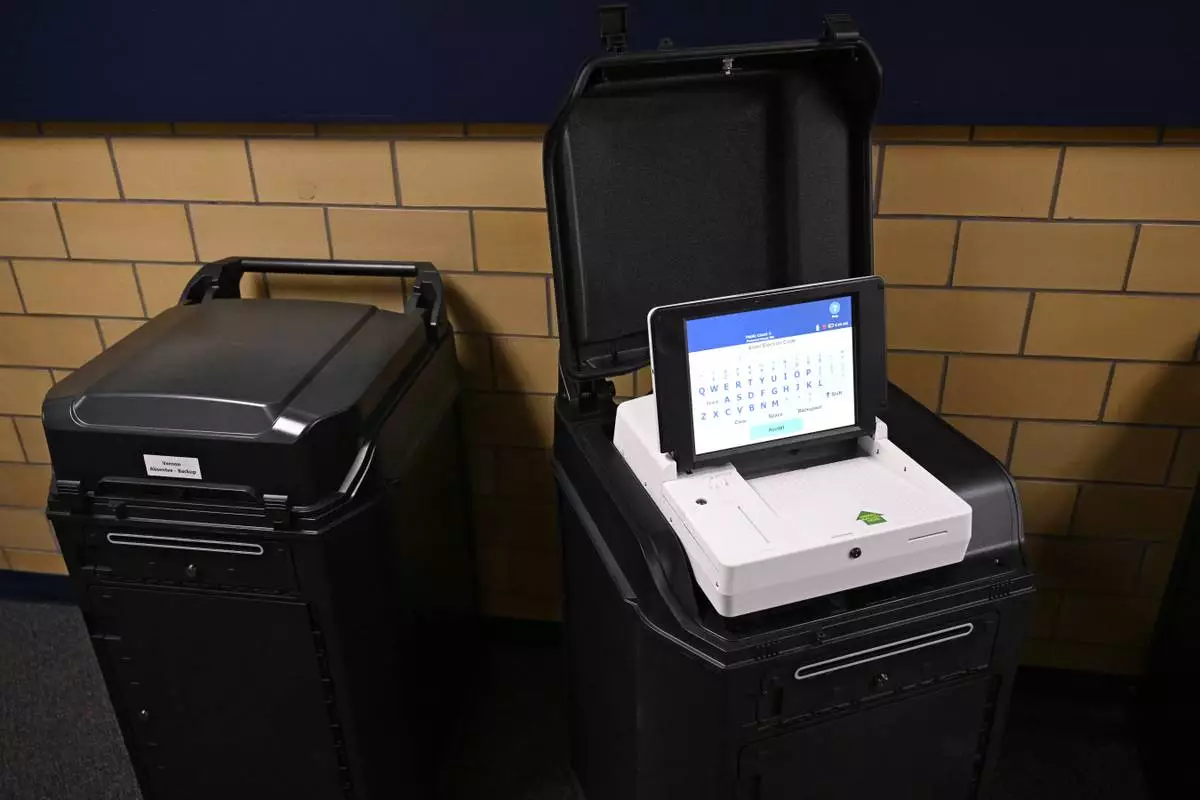
New voting tabulators are pictured at the Registrars of Voters Office, Thursday, March 27, 2025, in Vernon, Conn. (AP Photo/Jessica Hill)
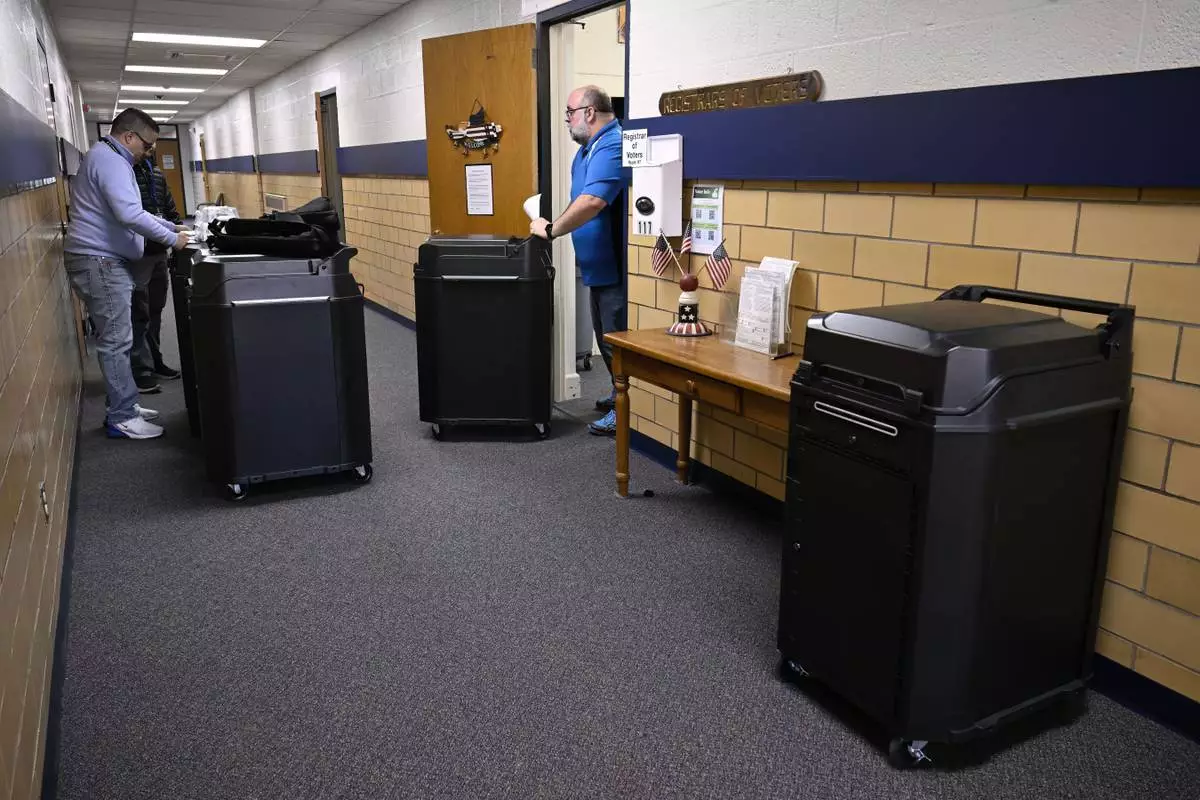
Christopher Prue, president of the Registrars of Voters Association of Connecticut, right, moves new voting tabulators out of his office at the Registrars of Voters to be redistributed to other towns, Thursday, March 27, 2025, in Vernon, Conn. (AP Photo/Jessica Hill)


